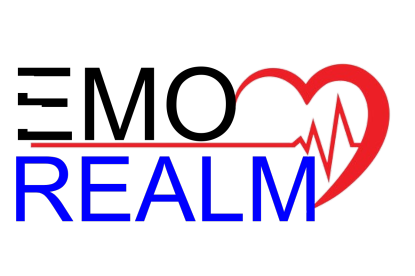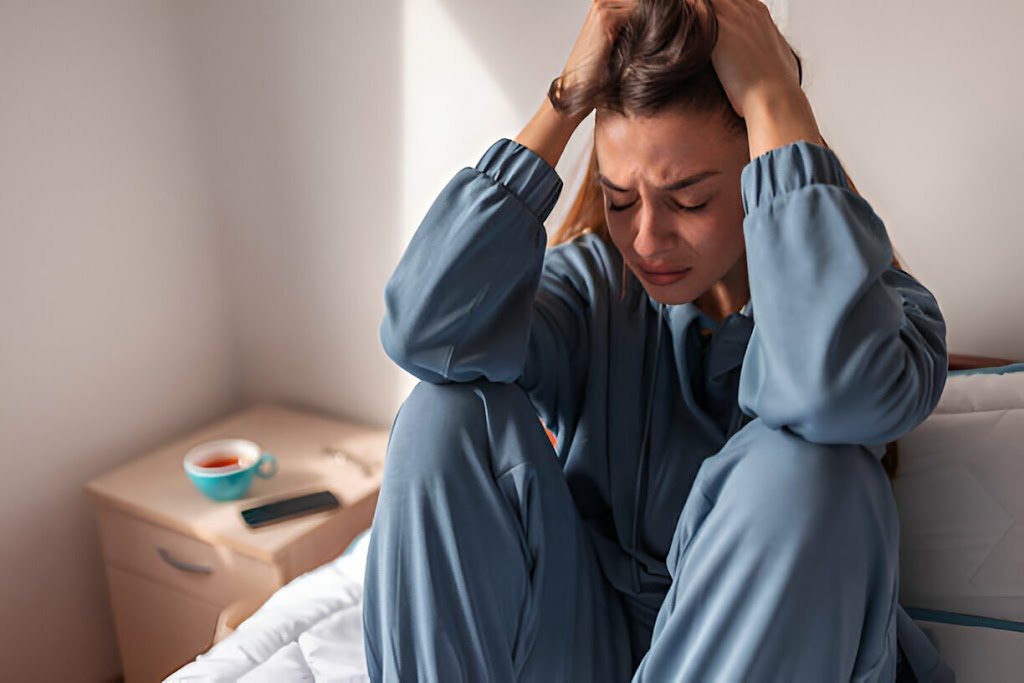Understanding Anxiety
Anxiety hits everyone, no matter age, culture or background. Figuring out what it really is – then seeing how it impacts your thoughts and physical state – gets you started on handling it better.
What Is Anxiety?
Anxiety pops up when things feel stressful, unclear, or risky. It usually shows as dread, nervousness, yet restlessness over events real or imagined. Feeling anxious now and then? Totally typical – everyone gets there sometimes. Still, if it hits too hard, too much, or won’t let go, daily tasks take a hit; connections suffer alongside overall well-being.
Common Symptoms of Anxiety
Anxiety might pop up as feelings or body signs.
| Body Changes | Feelings |
| A racing heart | Irritability |
| Shortness of breath | Restlessness |
| Trembling or shaking | Difficulty concentrating |
| Sweating | Worrying too much – or just assuming things will go bad |
| Dizziness or nausea |
Finding these signals fast lets people act to handle stress – before it gets out of hand.
Types of Anxiety Disorders
Anxiety issues cover different problems when fear or stress gets out of hand – like how some folks feel overwhelmed by everyday situations. Typical types are:
-
Generalized Anxiety Disorder (GAD): ongoing, overwhelming concern about routine stuff.
-
Social Anxiety Disorder: fear of talking to people or getting looked at.
-
Panic Disorder: recurrent panic attacks accompanied by intense physical symptoms.
-
Specific Phobias: intense dread focused on certain things or moments.
Even though every situation is different, they all come with worry that messes up normal routines.
Facing anxiety means seeing how it shows up in different ways, so you can start doing things that help. Keep in mind – lots of folks deal with this, but there are real methods that work.
Lifestyle Changes for Managing Anxiety
Dealing with anxiety isn’t easy, yet making steady tweaks might help calm things down. Doing little things regularly could actually make your mood better over time.
Prioritizing Self-Care
Looking after yourself helps keep your mind steady. Put limits where needed, do stuff you like, or just pause when tired – it eases pressure before it grows. This isn’t a luxury; it’s necessary for staying mentally strong.
Incorporating Regular Exercise
Exercise sets off endorphins – substances your body makes to lift spirits and ease tension. Be it swimming, lifting weights, a stroll, or yoga, moving often helps cut down worry and builds mental toughness.
Eating for Mental Wellness
Nutrition affects how you feel each day. Eating plenty of fruits, veggies, clean protein, or oats gives your mind what it needs. Cutting back on soda, sweets, maybe coffee eases restlessness while keeping stamina steady.
By sticking to daily care routines, moving more often – while paying attention to food choices – people might slowly lessen how much anxiety affects them.
Relaxation Techniques for Anxiety Relief
Adding relaxation tricks into your day helps you feel more steady, while easing pressure. These ways slow down racing thoughts, cut anxiety, or bring lasting peace inside.
Deep Breathing
Taking it slow with your breath tells the body to relax. Breathe in deep through your nose, hold just a second, then let it out like smoke – calm and steady. This little move loosens tight muscles while breaking up racing thoughts. When things feel heavy, try it – it brings balance back without waiting around.
Mindfulness and Meditation
Mindfulness means paying attention to right now – without labeling things good or bad. On top of that, meditation helps steady your thoughts using visualization, concentrating on one thing, or checking in with different parts of your body. Instead of getting caught up in worry, these habits weaken anxiety’s grip while also helping you notice emotions more clearly.
Progressive Muscle Relaxation
This approach means squeezing then letting go of muscles, starting at your head and moving down. Because you focus on each part, you start noticing where things feel tight. Instead of staying tense, your body learns to unwind better. As weeks pass, this can ease the stiff feeling that often comes with worry.
Working these exercises into your day gives you handy ways to handle worry – whether it’s regular pressure or tougher situations.
Cognitive Behavioral Strategies for Coping with Anxiety
Cognitive Behavioral Therapy methods help change the thoughts behind anxious feelings. Yet they promote better ways of thinking while improving how people handle stress.
Challenging Negative Thoughts
Anxiety usually comes from thoughts that aren’t logical or are blown out of proportion. When you challenge those ideas – by checking if they’re true or considering other possibilities – it helps you see things more clearly while calming your response. Instead of reacting on impulse, you start thinking it through, which lowers stress over time.
Setting Realistic Goals
When you’re swamped, worry often gets worse. Doing one small thing at a time builds progress while lowering pressure. Setting doable targets avoids exhaustion – plus it makes you feel more capable.
Developing Healthy Coping Skills
Coping tricks – like talking kindly to yourself, staying present, picturing a peaceful scene, or doing something soothing – can make tough moments easier. When you’ve got different options ready, handling sudden stress feels less overwhelming.
These methods need regular effort – yet with time, they really boost mood while cutting stress.
Seeking Professional Help for Anxiety
Though DIY methods help, getting expert guidance might make a big difference when dealing with tough anxiety – especially if it’s intense or ongoing.
Therapeutic Support
Therapists give you space where you can look into your thinking, feelings, or actions that fuel worry. Often used methods are:
-
One-on-one sessions that fit your needs, while helping you grow step by step.
-
Group therapy – stories together, a circle that listens.
-
Cognitive behavioral therapy or mindfulness practices – solid ways to ease anxiety.
Therapy gives people insight into their worries while helping them build unique strategies – so they can handle stress better over time. What works differs from one person to another, yet most find clearer ways to cope through consistent effort.
Medication Options
Some people might need pills to feel less anxious. Though meds aren’t the only fix, they can work alongside counseling to help daily life run smoother. Deciding on medicine should always involve a trained health provider.
Building a Support System
Folks like friends or relatives – along with group chats or forums – offer a listening ear when times get tough. Having people around who care makes hurdles easier to face, simply because you’re not alone in it.
Asking for expert guidance shows bravery, also a real drive to get better – never a sign of falling short. Help’s out there; choosing it might seriously boost your mood and inner strength.
Conclusion
Dealing with anxiety takes more than one approach – shifting daily habits, trying calming techniques, adjusting thought patterns, or sometimes getting help from a therapist. Using practical methods regularly makes it easier to handle, helping people feel more steady, focused, and at ease.
Here’s the thing: taking care of your mind shows courage. Step by step, with help from others, it’s possible to handle anxiety better – opening doors to a calmer, richer everyday life.
FAQs
What sets anxiety apart from stress?
Stress usually comes from something happening right now; on the other hand, anxiety shows up when you’re thinking about what might go wrong later. They can seem alike at times – yet anxiety sticks around, even once the pressure’s off. Instead of fading fast like stress, it lingers without a clear reason.
What’s the way to spot regular worry versus a real anxiety problem?
Normal anxiety fades – it’s tied to specific moments. On the flip side, anxiety disorders stick around, bringing nonstop stress that gets in the way of everyday life. When it messes with your focus, habits, or connections, getting a check-in with someone skilled could make sense.
Is it possible to beat anxiety without help from an expert?
Mild anxiety might get better with daily habits or calming methods instead. But if it sticks around – or feels intense – talking to someone trained could help more than trying alone. Medicine sometimes plays a role, depending on what’s going on. A specialist can shape a path that fits how you live and feel.




